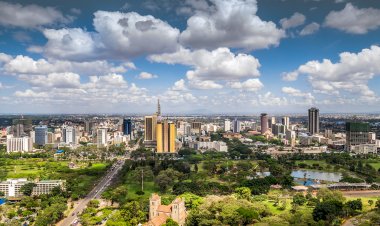Kenyan Real Estate Regulations: What Diaspora Investors Need to Know
Diaspora investors looking to invest in the Kenyan real estate market should familiarize themselves with the key regulations governing real estate investment in the country.

Kenya has been experiencing a surge in real estate investment in recent years, with many diaspora investors looking to capitalize on the growing market. However, navigating the regulatory landscape in Kenya can be challenging, especially for those living abroad. Understanding the key regulations governing real estate investment in Kenya is crucial for diaspora investors to make informed decisions and avoid potential pitfalls.
One of the primary regulations that diaspora investors need to be aware of is the Land Control Act. This legislation governs the ownership and use of land in Kenya, including restrictions on foreign ownership of land. Under the Land Control Act, non-citizens are prohibited from owning freehold land in certain designated areas, known as "trust lands." Instead, non-citizens can only lease land in these areas for a maximum period of 99 years. Diaspora investors need to familiarize themselves with these restrictions before making any real estate investments in Kenya.
Another important regulation that diaspora investors should consider is the Land Registration Act. This legislation governs the registration of land transactions in Kenya and provides a framework for the protection of property rights. Diaspora investors should ensure that any land transactions they enter into comply with the requirements of the Land Registration Act to avoid potential disputes or legal issues in the future.
In addition to these key regulations, diaspora investors should also be aware of the tax implications of real estate investment in Kenya. The Income Tax Act imposes taxes on rental income, capital gains, and property transfers, which can significantly impact the overall return on investment for diaspora investors. Investors need to consult with a tax advisor to understand their tax obligations and optimize their investment strategy.
Listen to the latest episode of African Real Estate Podcast here: https://spotifyanchor-web.app.link/e/928bvF4f7Hb
Furthermore, diaspora investors should consider the regulatory framework governing property development in Kenya. The Physical Planning Act and the Environmental Management and Coordination Act regulate the development of land and buildings in Kenya, including zoning regulations, building codes, and environmental impact assessments. Compliance with these regulations is essential to ensure that real estate projects are developed sustainably and responsibly.
For diaspora investors looking to invest in off-plan developments in Kenya, it is crucial to understand the regulations governing off-plan sales. The Sectional Properties Act regulates the sale of off-plan properties in Kenya, providing protections for buyers and ensuring transparency in the sales process. Diaspora investors should conduct due diligence on developers and projects before committing to an off-plan purchase to mitigate the risks associated with this type of investment.
Diaspora investors looking to invest in the Kenyan real estate market should familiarize themselves with the key regulations governing real estate investment in the country. By understanding the Land Control Act, Land Registration Act, tax implications, property development regulations, and off-plan sales regulations, investors can make informed decisions and navigate the regulatory landscape effectively. Consulting with legal and tax advisors is recommended to ensure compliance with the law and maximize the potential return on investment in the Kenyan real estate market.
If you have a real estate press release or any other information that you would like featured on the African Real Estate Blog Post, do reach out to us via email at [email protected]

































